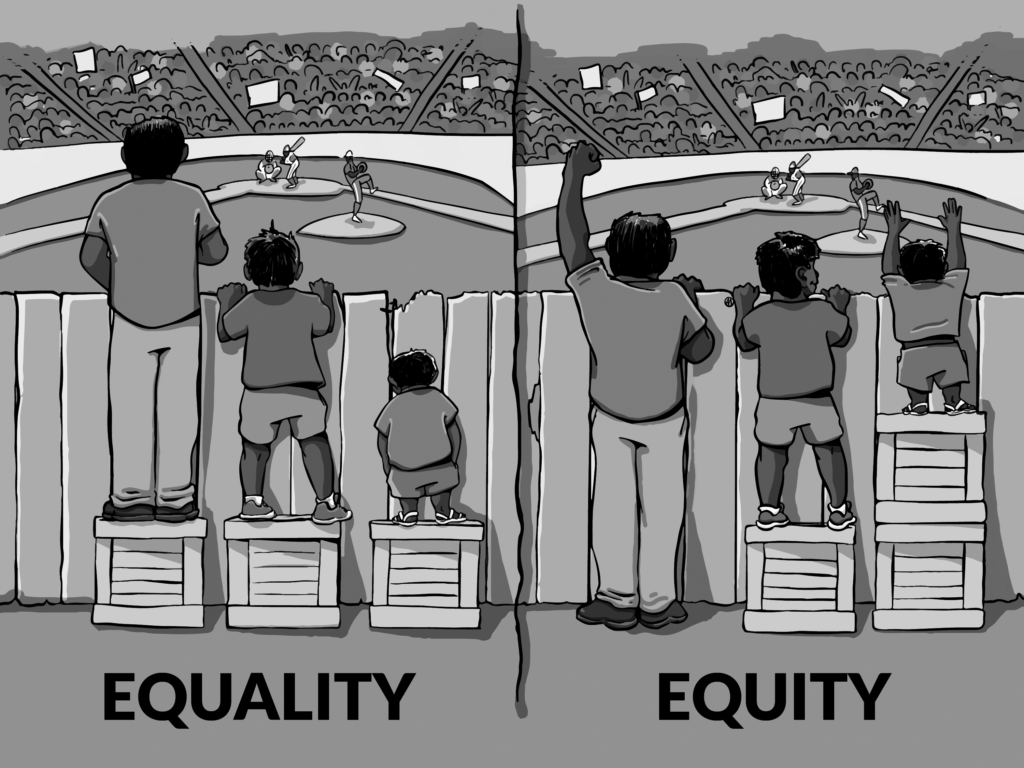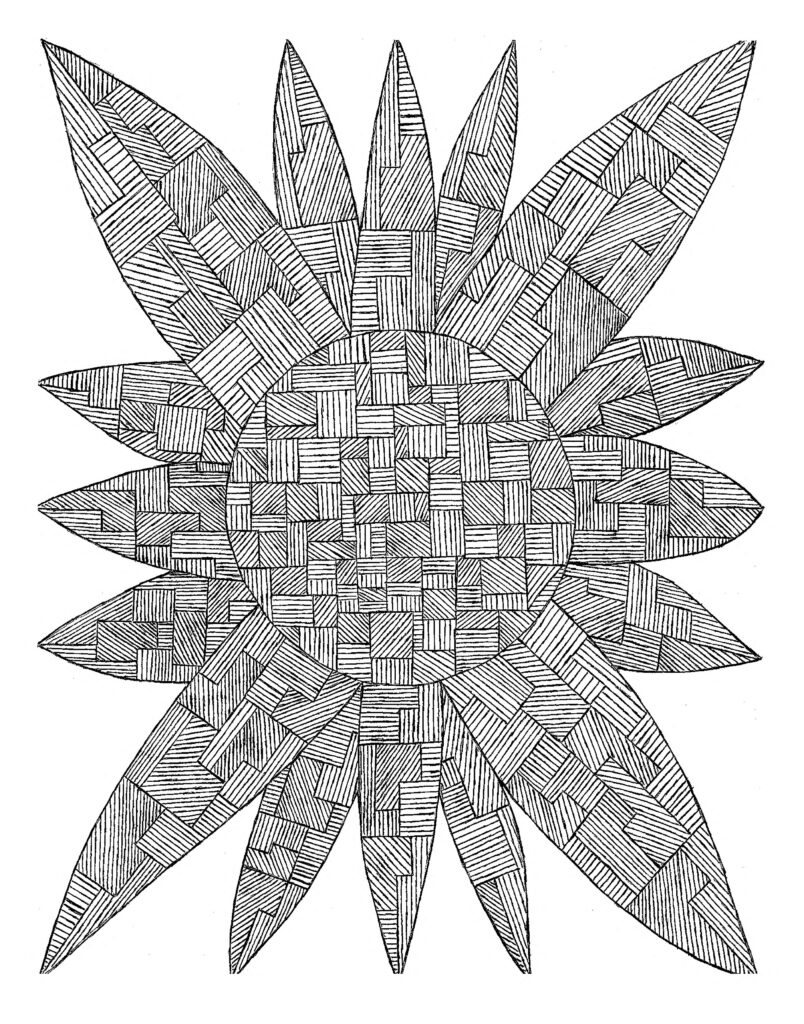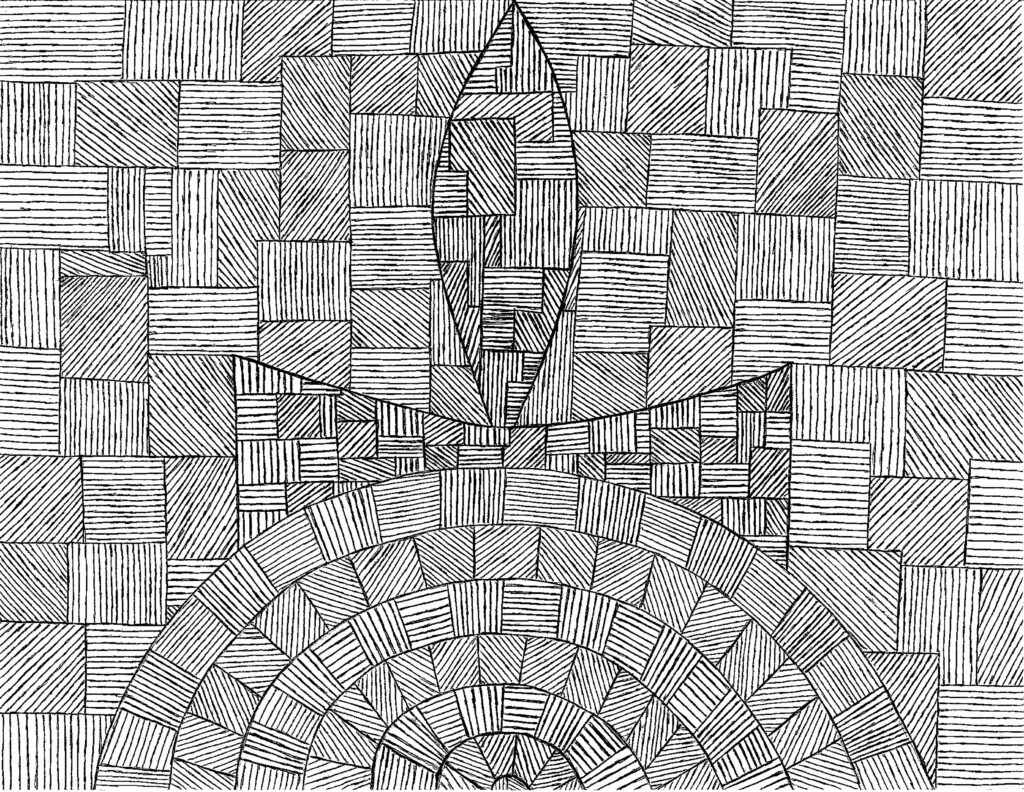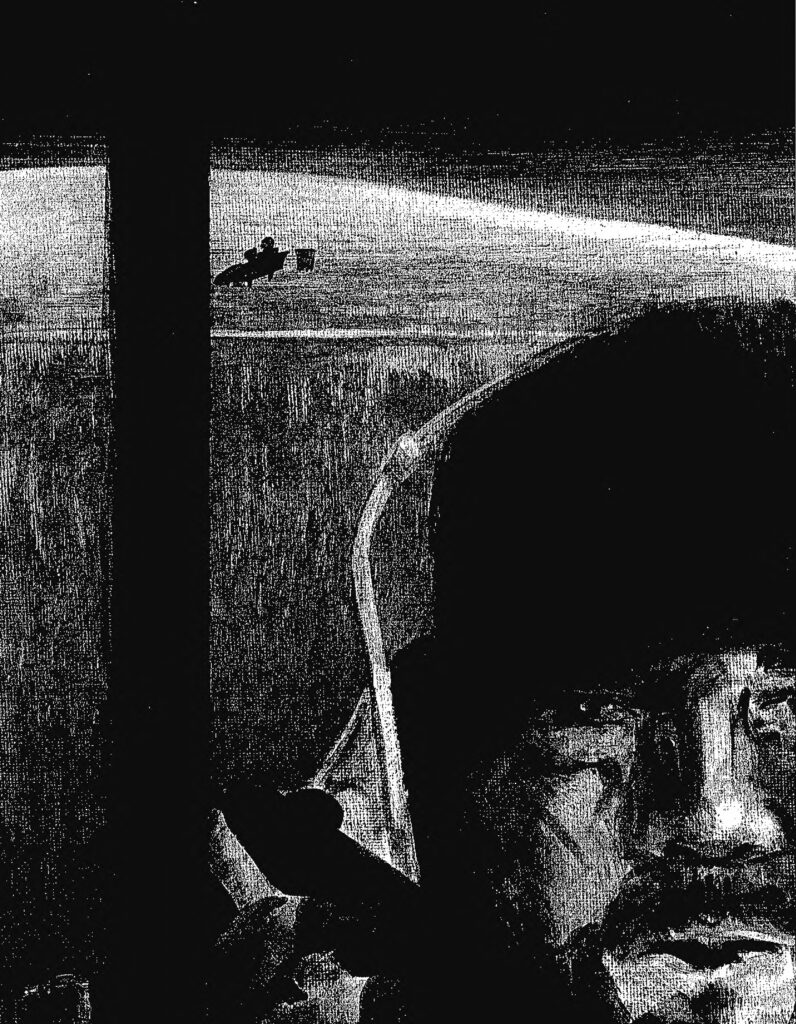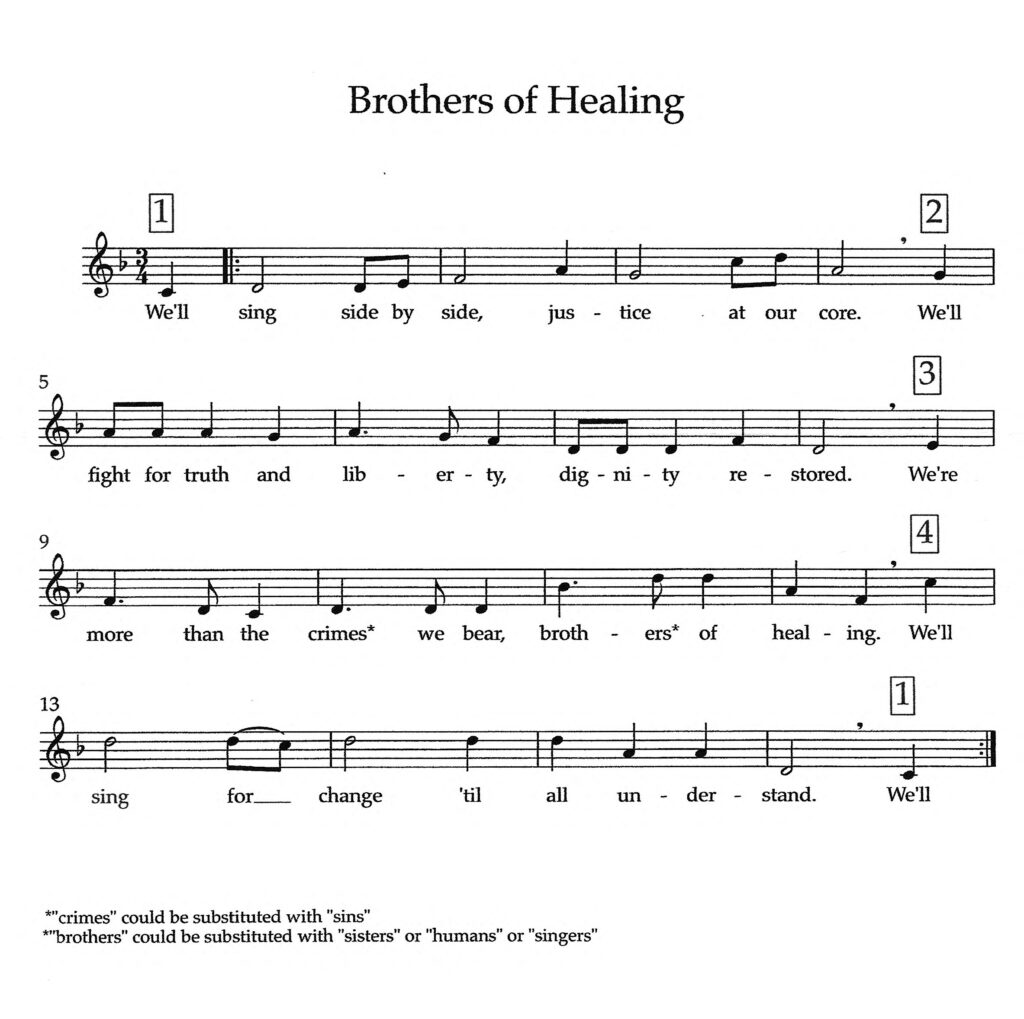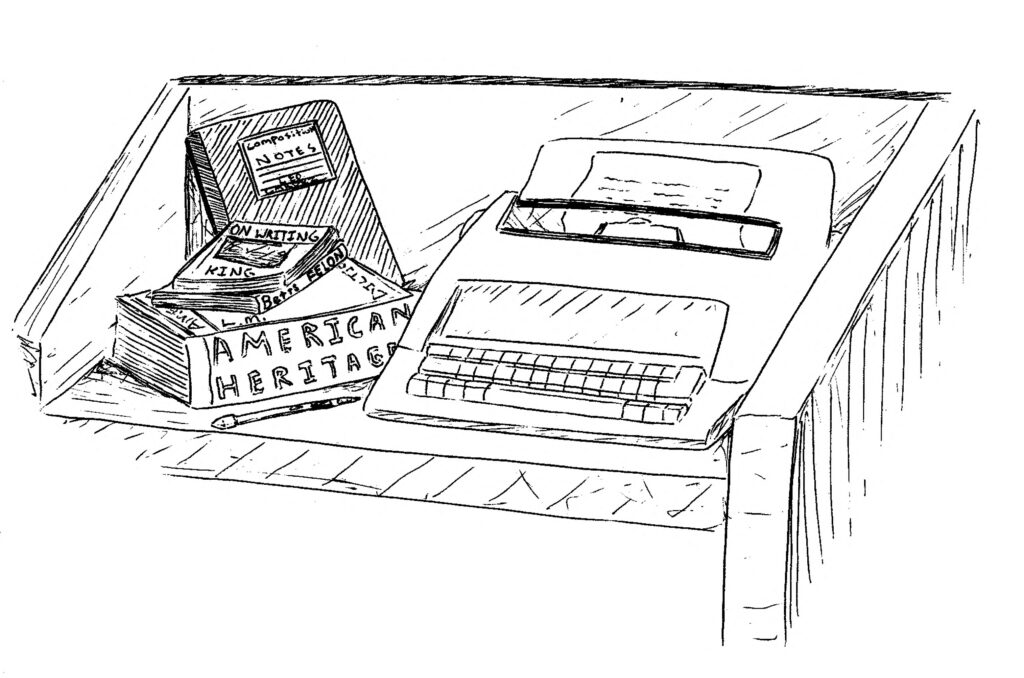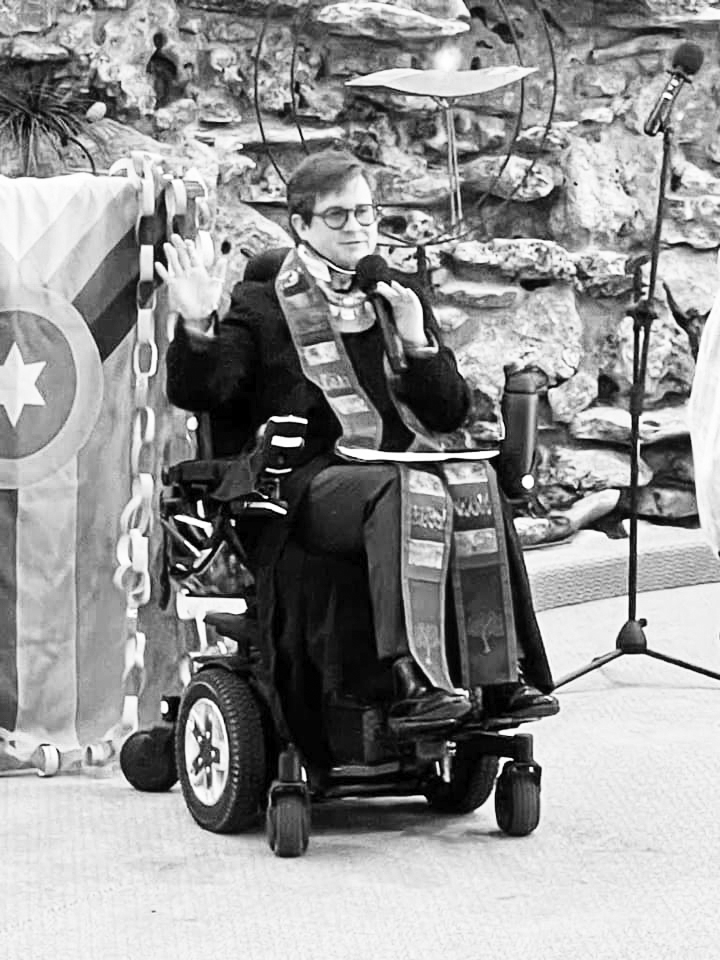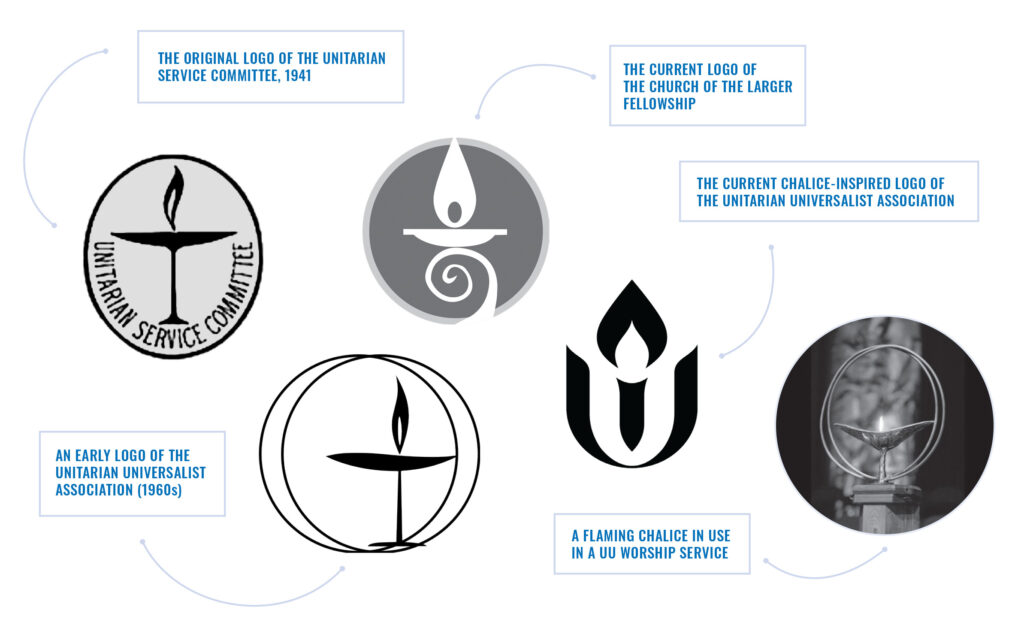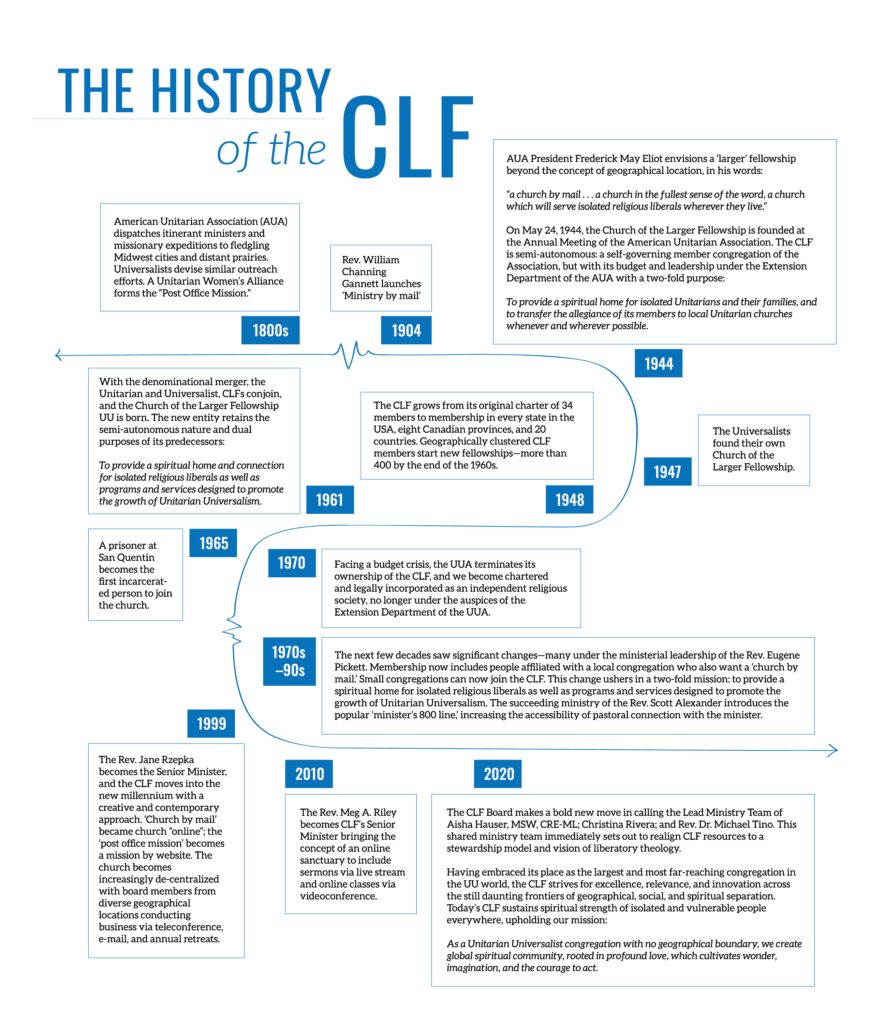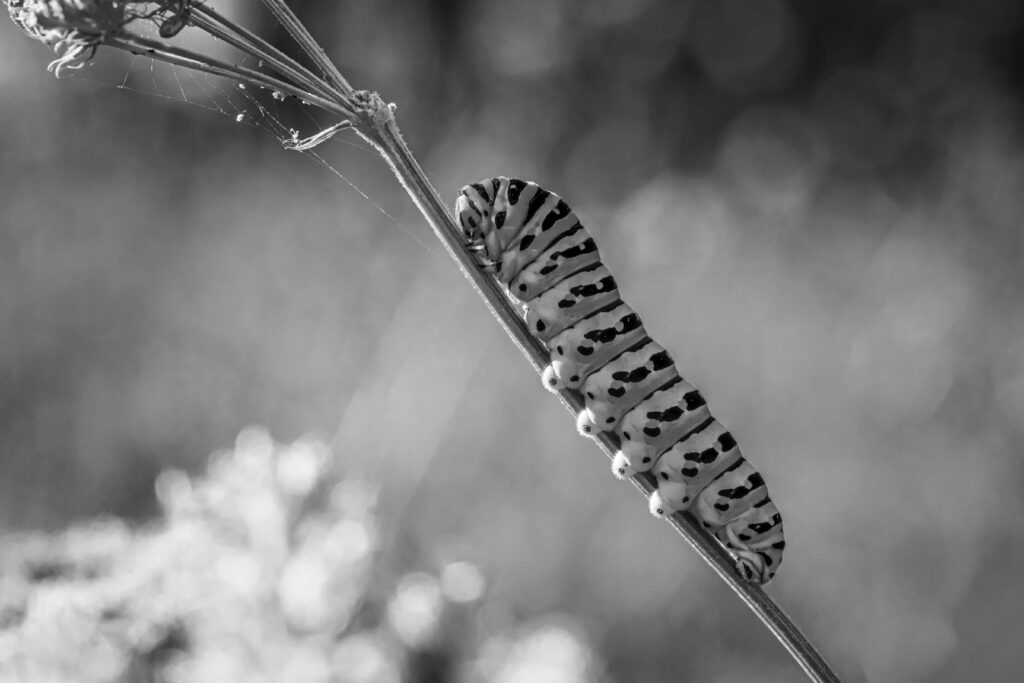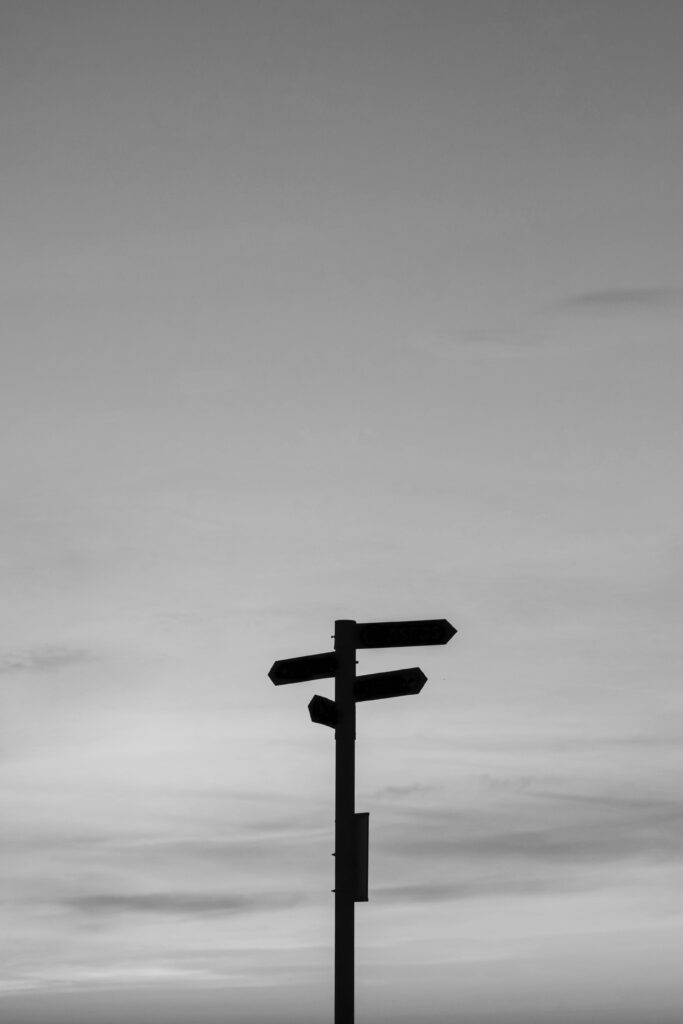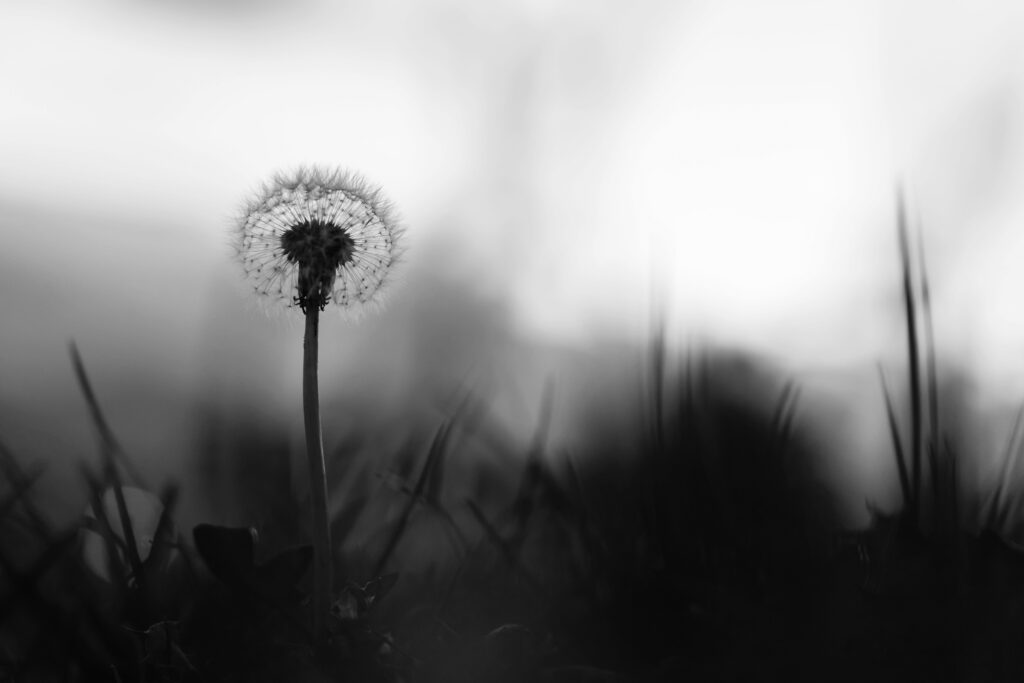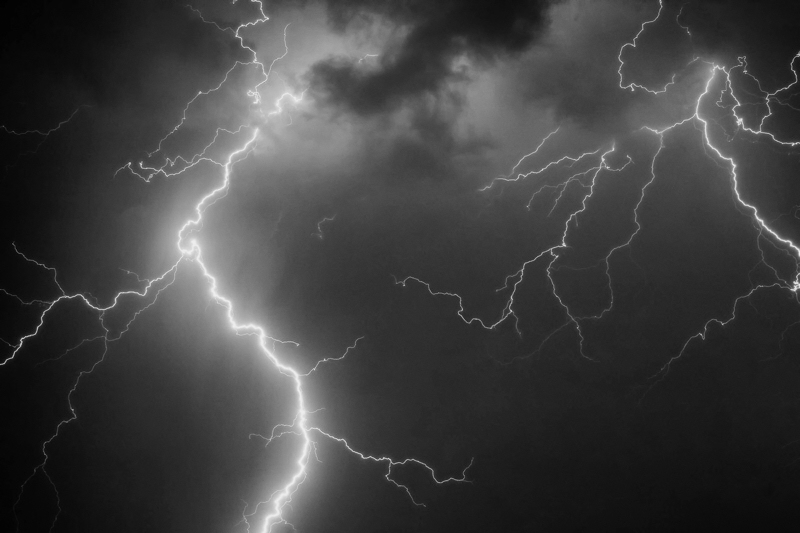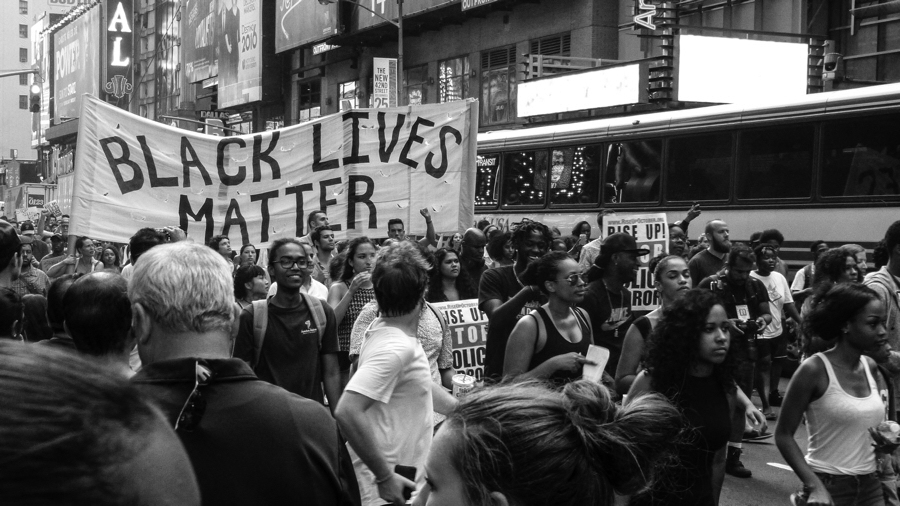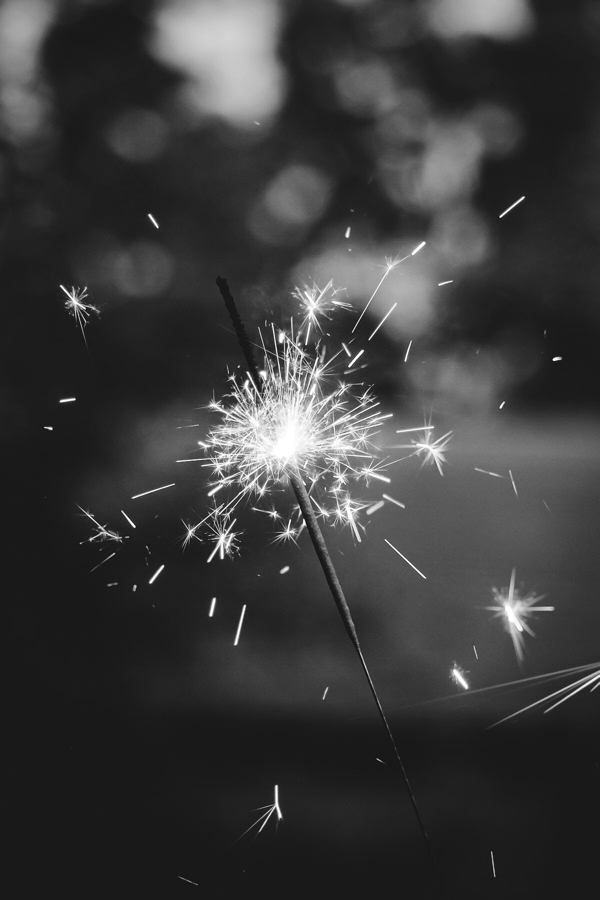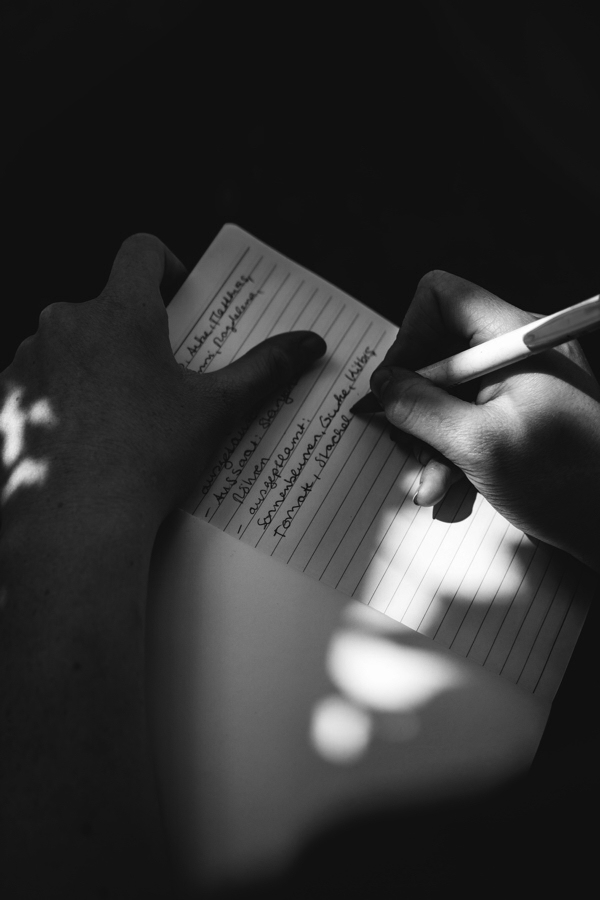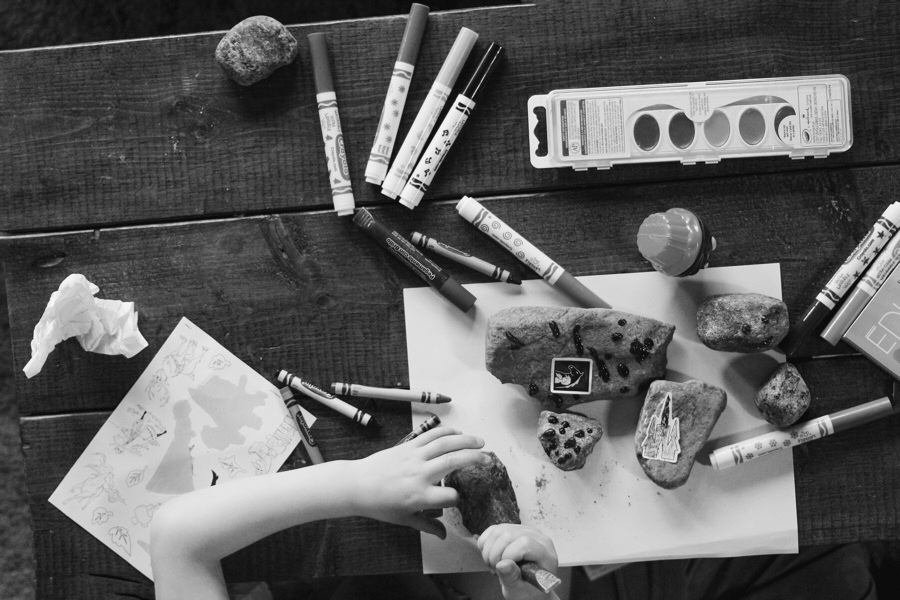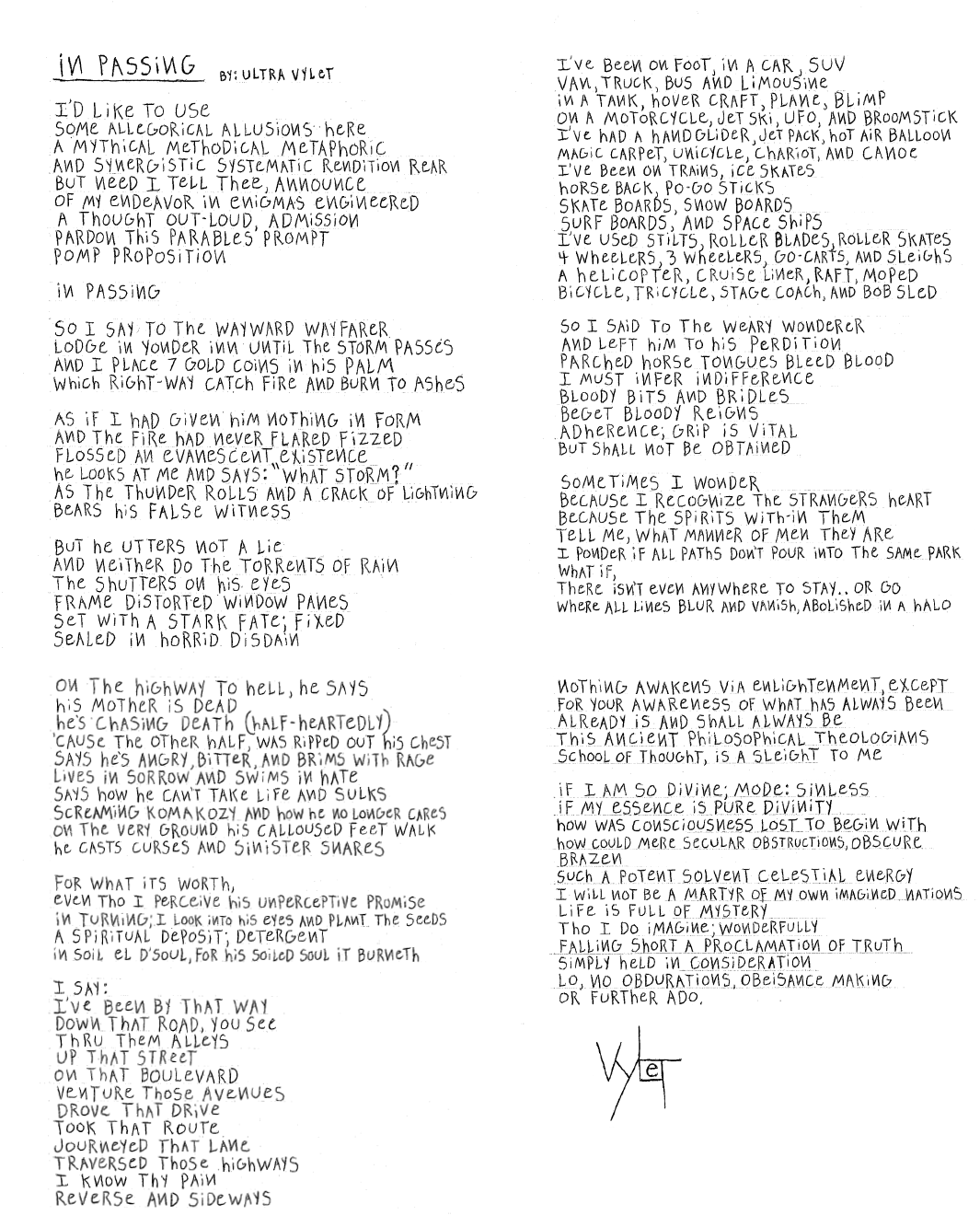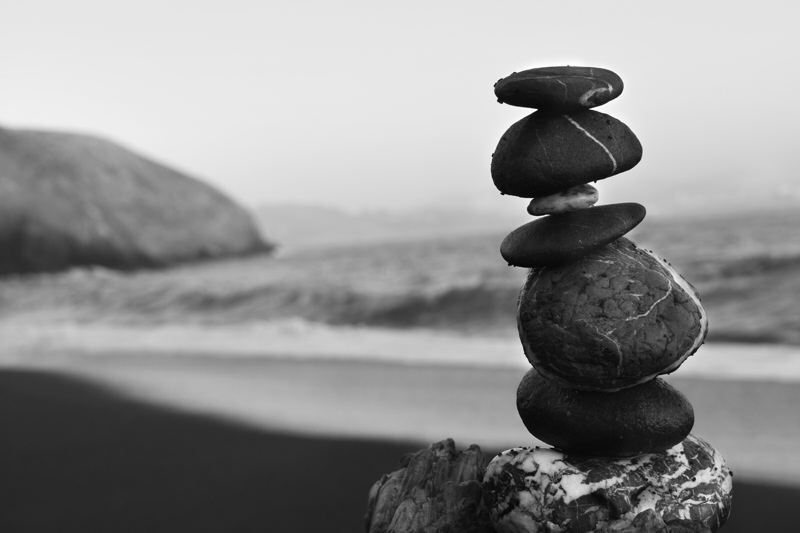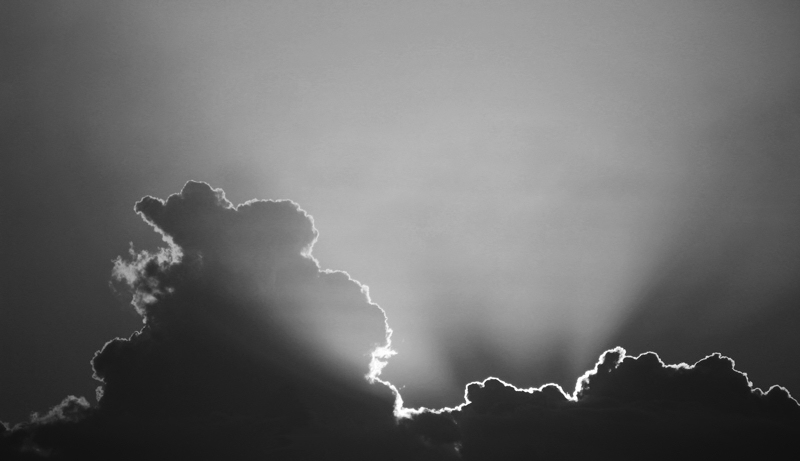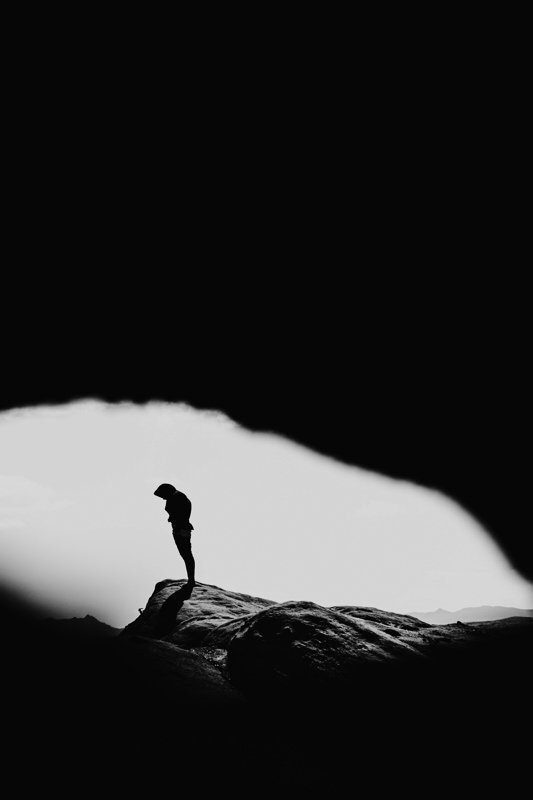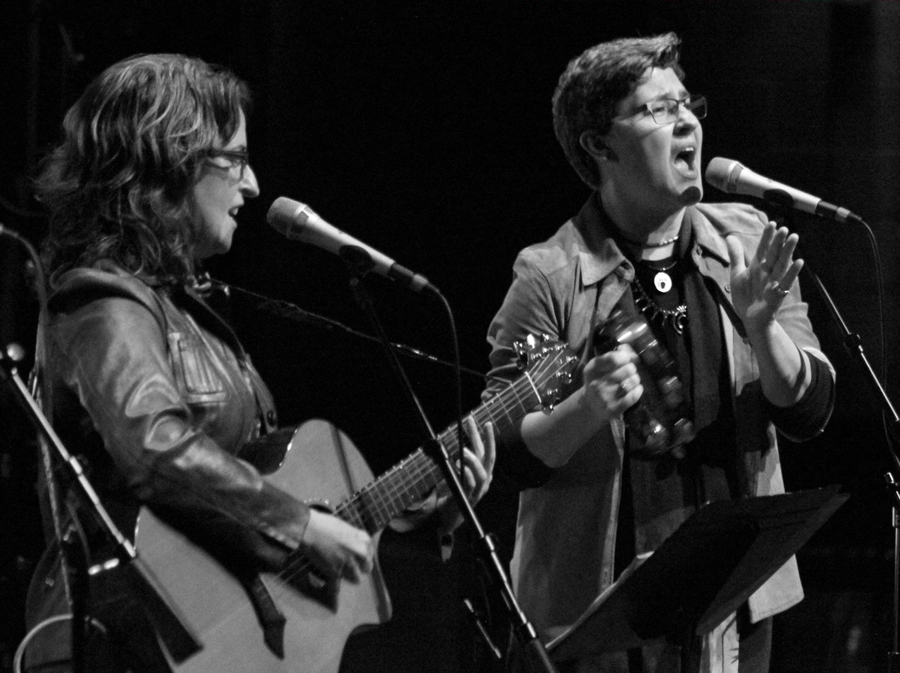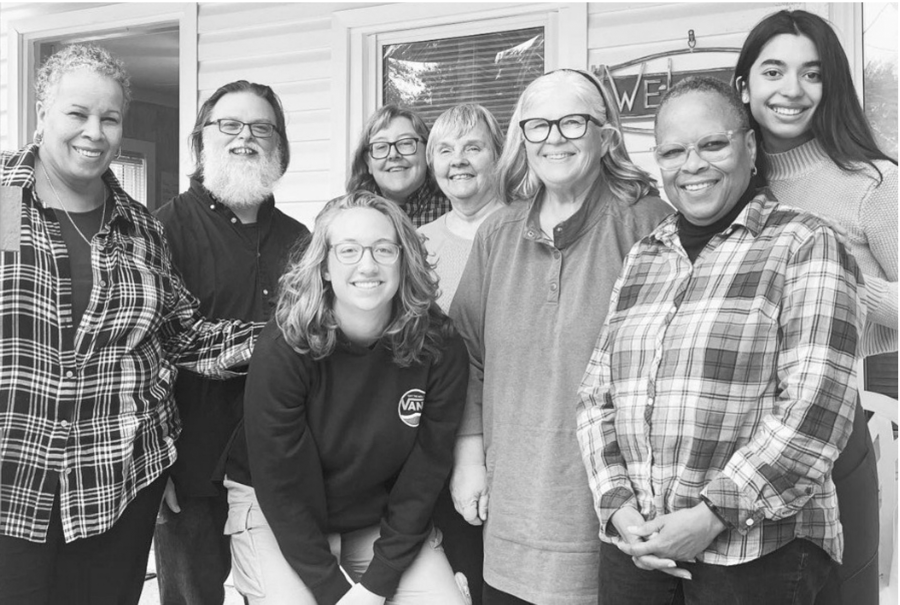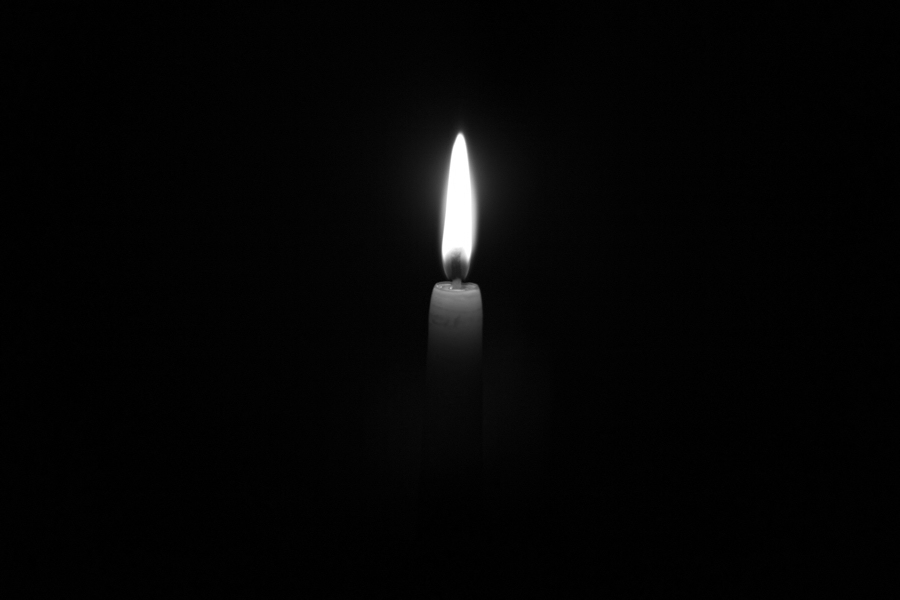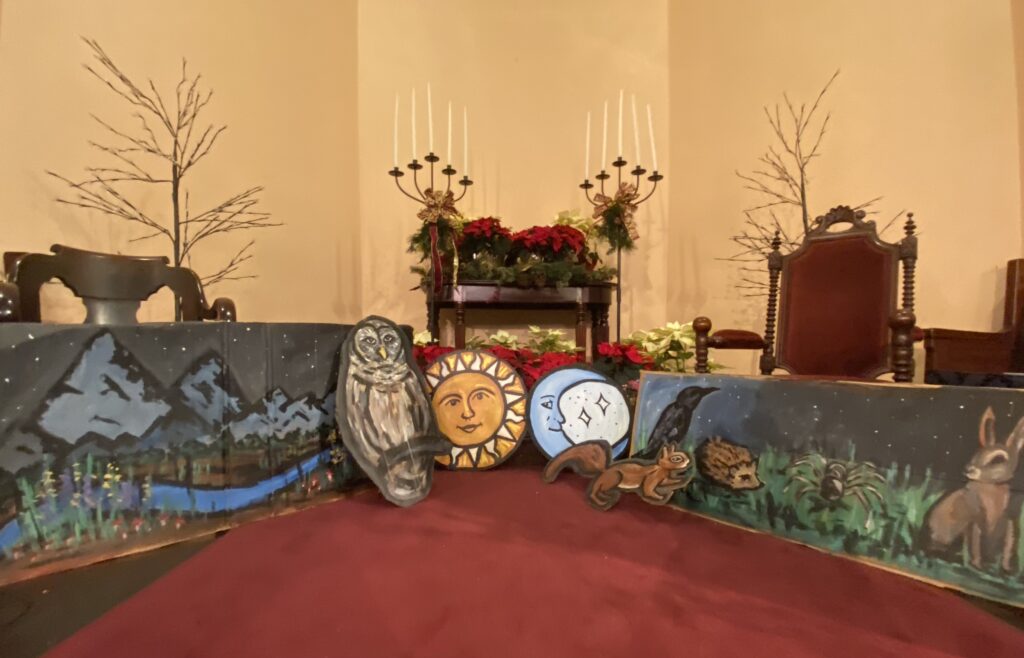
Artwork made by Rose Gallogly for the pageant version of this story, performed by the children of Theodore Parker UU Church (West Roxbury, MA)
Part I: the beginning of things, when cycles are born
When the world was very young, there were not yet any seasons. There were not even any days — the Sun and the Moon shared the sky in harmony, quietly watching over the world together. After time had been passing for some time, the Sun suddenly realized that he was tired.
The Sun said to his friend the Moon:
“Moon, I have realized that I am tired, and would quite like to rest. What if we traded places here in the sky, so that we each get a break from watching the world, and have some time to rest?”
The Moon thought this was a wonderful idea, so they tried it out: each taking a turn to watch over the world in the sky, while the other rested. This is how the day and the night were born. This new cycle suited the Sun and the Moon very well — so well, that they decided that they each wanted their own larger cycles, in addition to day and night, so that they each had more time to rest and be renewed.
The Moon decided that she would wax and wane, showing up a bit less each night, until she was able to take an entire night off, and then come back slowly until she was in her full, beautiful glow. And so the months were born.
The Sun decided that he wanted a longer cycle: he would go to sleep just a bit earlier every night and wake up a little later every morning for six months in a row, and then, more fully rested, he would start getting up earlier and staying up later for the next six months. And so the years were born.
The Sun and the Moon loved their new cycles even more than they had loved the days. So much more felt possible in the world when everything worked in cycles. In fact, the Sun and the Moon felt so energized by their rest times that they decided they were ready for more life to join the world: in each new cycle, they introduced a few new beings. One new being at a time, they added mountains and rivers, trees and mushrooms, grasses and flowers and animal beings of all sorts. After many, many cycles, the world was full of beautiful new forms of life.
Each time a new being was introduced to the world, the Moon whispered to them: remember always that this world works in cycles. There are times of great light and activity, and there are times of darkness and rest. This is the great rhythm of the world, and all beings must follow this pattern in their own way.
The mountains and rivers and trees and mushrooms and grasses and flowers and animal beings of all sorts followed these instructions, and they each found their own cycles. And for a time, all was well.
Part II: Squirrel arrives, disrupts the cycle
The world continued on for some time, with the mountains and rivers and trees and mushrooms and grasses and flowers and animal beings of all sorts living on, each in their own cycle. Things were going well, so more and more creatures were added to the world: now the world had Owl and Crow, Deer and Spider, Hedgehog and Fox and Bunny Rabbit. Some beings struggled more than others to learn about the rule of cycles, but especially by the time the year got dark and cold, they always seemed to find their natural rhythm.
One day, Squirrel was born. Squirrel was small and fast and so happy to be in the world. He was so excited, in fact, that when the first instructions from Moon were whispered in his ears, he didn’t quite absorb them — he was already scampering away, running up the nearest tree to explore and learn as much as he could about this new world he had found himself in. The other animals saw this, and it worried them a bit, but little Squirrel was so cute and inquisitive, they all figured that he would learn the way of the world sooner or later.
Squirrel arrived in the world on the summer solstice, when Sun was at his brightest and most full. Everything was blossoming and bursting with life, and Squirrel saw that the world was full of abundance. Even though every day after Squirrel was born, the Sun went to rest a little earlier and woke up a little later, each change was so small and Squirrel moved so quickly, that it was many months before he fully noticed what was happening.
A few months in, the days had become darker and colder, and the trees had started to shed their leaves as they prepared to rest for the darker months of the year. Squirrel finally noticed these changes, and one day, he asked Owl (who had been around for many years, and always seemed to have the answers) what was going on. Squirrel asked:
“Old Owl, why have the days become so dark and cold? The world had such abundance and warmth when I first arrived. Has something gone wrong?”
Owl replied: “Oh little Squirrel. Did you not listen to Grandmother Moon when you arrived? Our world works in cycles — the Sun and the Moon each rest in their turn, and so must we. There is abundance also in our rest.”
Squirrel heard what Owl had said, but quickly dismissed it. Squirrel was very young, after all, and had some of the arrogance that often comes with youth. He thought, “Surely that only applies to the old beings who have been here for many years — I don’t feel tired at all! I’m so small and quick, I’m sure I’ll be able to zoom right through this cycle thing without missing anything while resting. I’ll stay awake all the way through these long nights and soon enough, the Sun will be back to brighten the long days again.”
The days kept getting shorter and the nights kept on getting longer, and most of the beings in the world watched this great cycle turning and responded in their way. Many of the trees shed all of their leaves, and the plants closed up their flowers. Crow and Hedgehog and Spider and Bunny Rabbit cozied up their homes and rested all through the long nights. Even old Owl, whose way was to stay awake through the long night and to sleep during the day, still honored this cycle in her own way: she grew a thicker coat of feathers to keep her warm in the beautiful cold and dark world.
But Squirrel, in his youthful arrogance, did not respond to the cycle’s turning. Squirrel pretended he was not cold and did not grow a warmer coat, but instead kept on moving so quickly that no other creatures could keep track of where he was. And even though it should have been Squirrel’s way to sleep through the long nights, he kept himself awake, wandering far and wide when he really needed to rest.
Finally, the world got to the longest night of the year, the turning point in its cycle, and the Sun went down for his deep, restful sleep. The Moon, who lived on her own cycle, was up full and high in the sky that night, watching over all of creation, as she always did.
As the Moon watched the world that night, she was pleased to see so many beings still following her important first instructions: some were awake, as was their way during the nighttime, and many were resting, as was their way. All seems well as the night went on and the Moon made her way through the sky.
Then, when the night was almost over, the Moon spotted something strange: there was little Squirrel, wearing much too thin of a coat of fur, and staying awake in hurried activity even though she knew full well that was not his true way of things. Moon suddenly felt a flash of anger that this being she had brought into the world was ignoring her instructions so fully! Were none of the other beings seeing this and helping him learn? In her anger, the Moon stormed away from the world — leaving the dark night without even the light of her presence. The Stars, who always watched the world kindly from their far-away homes, saw the Moon leaving and thought they should follow suit. The Sun, without the Moon returning to wake him and start the next day, slumbered on. So the world was left in darkness without Moon or Stars or Sun: the cycle of the year had stopped turning.
Part III: Squirrel learns to rest, everyone learns to turn the year around
It was Owl who noticed first. She loved the dark, so it was not the long darkness itself that she minded — but her heart felt it the moment the Moon and the Stars had left, and she knew something was wrong. There was an unnatural stillness to the world: the year had stopped turning.
Owl, even in all her wisdom, didn’t know what to do. The year had never stopped turning before! How could she call the Moon back and keep the cycle going?
Owl decided she needed help, not just from her animal friends, but from all of the beings of the world. She flew around waking everyone up: the trees and the flowers, the deers and the spiders, the mountains and mushrooms, telling all of them, “Wake up wake up! The Moon has left us, the year has stopped turning!”
Soon, all the beings were awake, disoriented and confused in the pitch darkness. Owl was trying to get everyone ordered, to see if they could come up with a plan, when she felt a little tug on her bottom feathers.
She looked down and saw Squirrel, small and tired and shivering in his too-light fur coat. Tears were streaming down his young face, freezing in the cold night air as they fell. He tried to speak, but words failed him.
Owl said: “Oh my dear, it can’t be as bad as all that! What’s wrong?”
Squirrel, speaking through his tears, said, “But Owl, it is, it is! It is all my fault that the year has stopped turning. The Moon saw me running around when I should have been resting… It’s because of me that she felt so angry that she left the sky altogether. I don’t know what to do!”
Owl sighed, and was still for a few moments. The poor young Squirrel in front of her was so very tired and distraught — Owl knew that more than anything, before anything else could happen, Squirrel needed to sleep. Owl thought back to her earliest days and remembered a song that a grandmother of some kind had sung to help the beings of the world learn to fall asleep.
Owl said, “Dear child. Rest now — the year has stopped turning, so really, we are in no rush. Let me help you fall asleep.”
And she started singing:
Return again *
Return again
Return to the home of your soul
Return again
Return again
Return to the home of your soul
The other beings who had been woken up in all of the commotion started to listen in — and particularly the older ones, who had been around in the very first cycles of the world, realized they knew the song too.
Return again
Return again
Return to the home of your soul
Return again
Return again
Return to the home of your soul
Before long, all of the beings of the world, all of the mountains and rivers and trees and mushrooms and grasses and flowers and animal beings of all sorts were singing. It felt right to all of them, somehow, to join together in song when the world was suddenly so strange and uncertain. Little Squirrel, who had been so very exhausted from trying to outrun the turning of the year, was soon fast asleep — but the other beings of the world kept on singing.
The sound grew so loud and resonant that even in her far-off place away from the world, the singing started to reach the Moon. She inched closer and closer until she could hear them clearly:
Return again
Return again
Return to the home of your soul
Then the Moon, the great grandmother of the world, realized: they were singing the song she had taught them! The anger in her heart started to soften, and she realized how hasty she had been to leave the world. After all, the beings she created were all still so young (that little Squirrel especially!) — of course they didn’t understand how very important cycles were yet. And now they were singing the very song that she had created to help them fall asleep! All was not lost after all.
And so, slowly but decisively, moving to the rhythm of their singing, the Moon returned to the world. She appeared again low in the sky, to the exact point she had left, just staying for a moment before going on to wake up Sun.
The many beings of the world, still circled up in song as all of them knew they should be as soon as they started singing, started to feel a lightness in their hearts. The sense of unnatural stillness began to shift. Just as the sun started peaking over the horizon line, they all realized together: the year had started turning again.
Little Squirrel, exhausted from his distress and his long refusal to follow his natural rhythm, slept for most of the month of this re-started year. When he woke up, the moon had gone through her full cycle, and was back in the dark, cold sky in her beautiful fullness. He saw her just for a bit, when she was low in the sky at the beginning of night. The young Squirrel was still moving as quickly as ever, but with purpose this time: he had much to gather to keep himself warm and fed before returning to a restful slumber for the rest of the night. Squirrel had found his natural cycles of things, and honored it as best he could. The Moon was glad, and she hummed an old familiar tune as she traveled, as ever, through her cycle in the sky.
All was well.
* “Return Again” by Shlomo Carlebach, Singing the Journey #1011
Return again,
Return again,
Return to the home of your soul.
Return to who you are,
Return to what you are,
Return to where you are
born and reborn again.



 January 2025
January 2025

